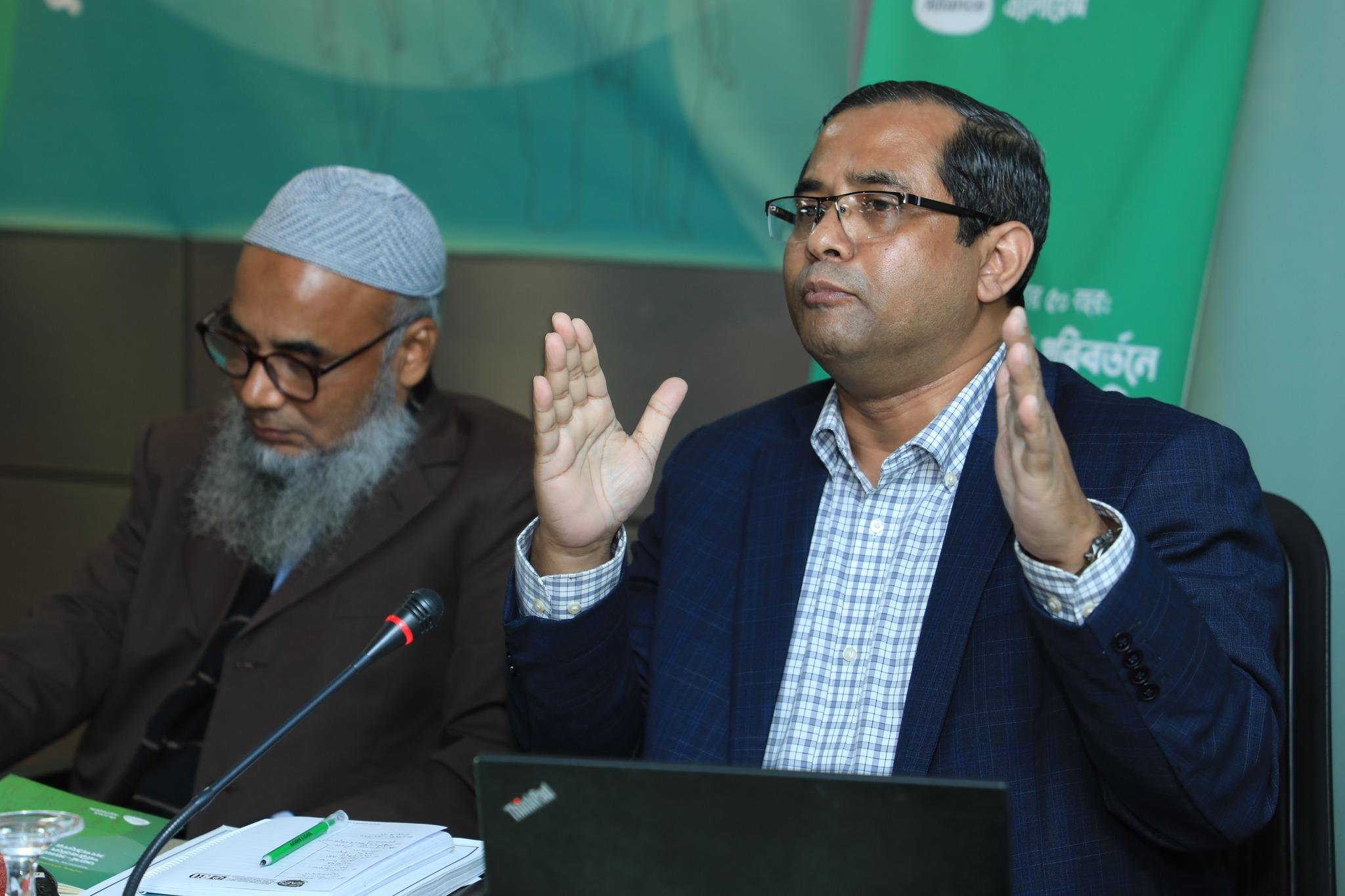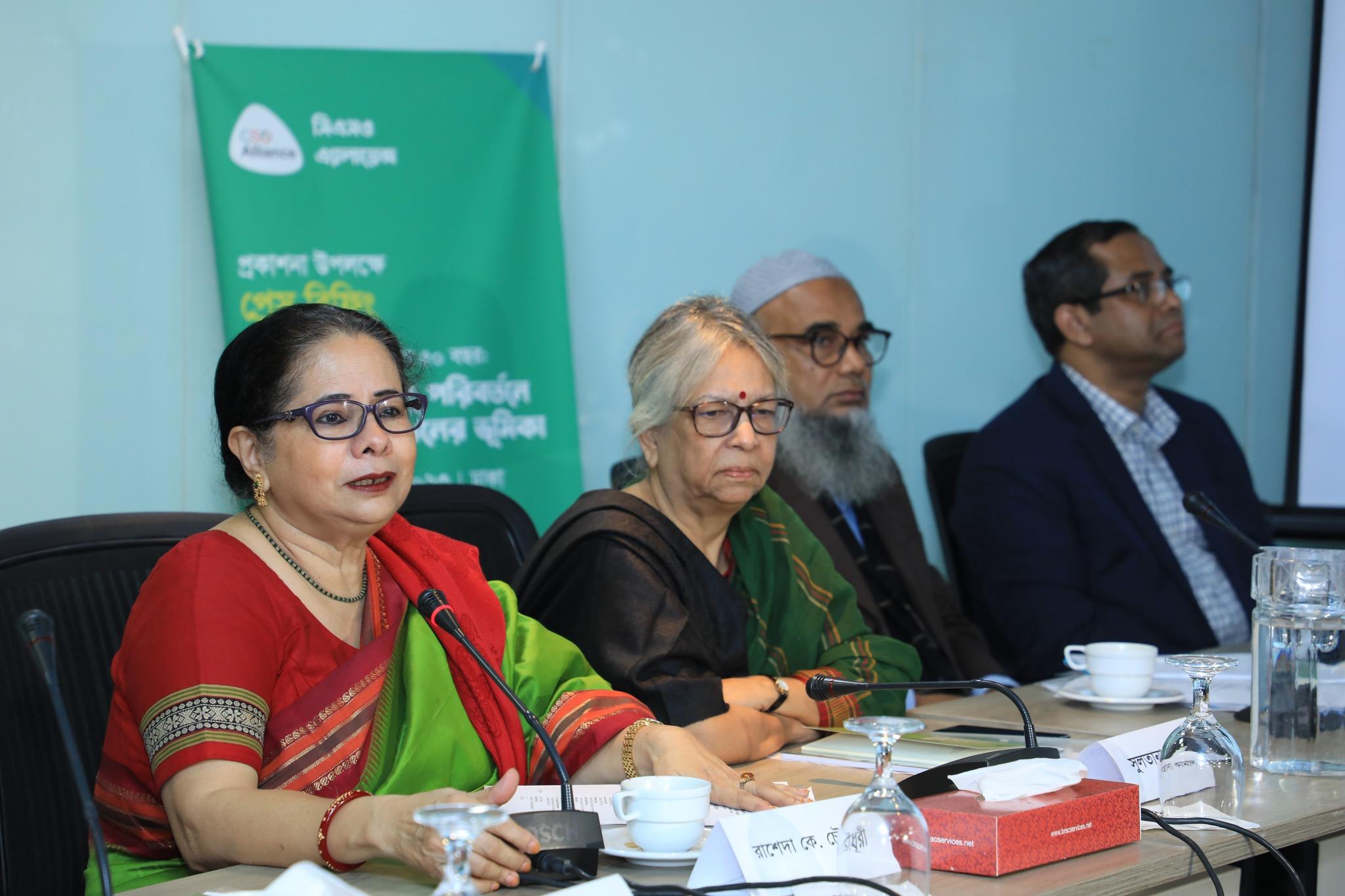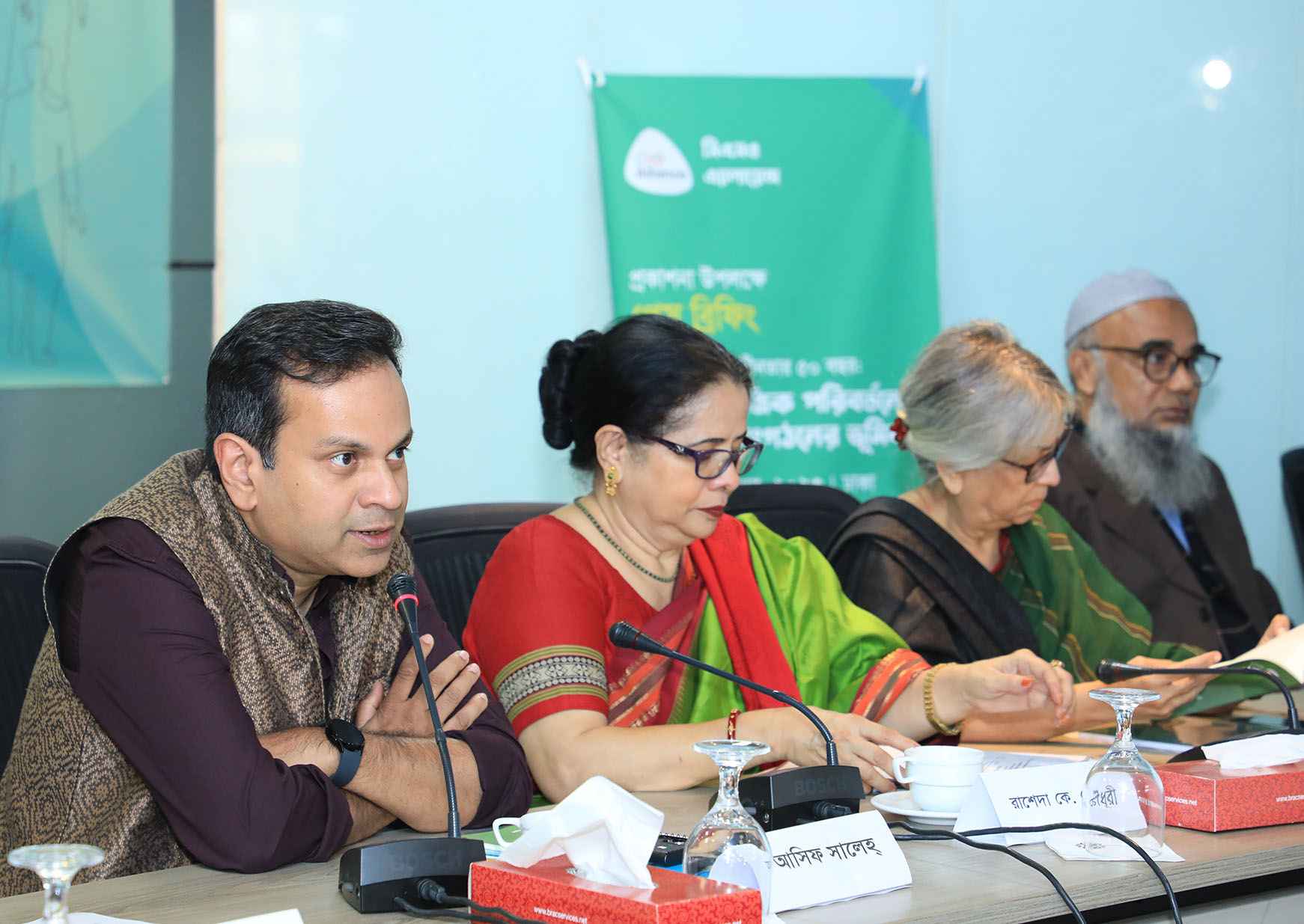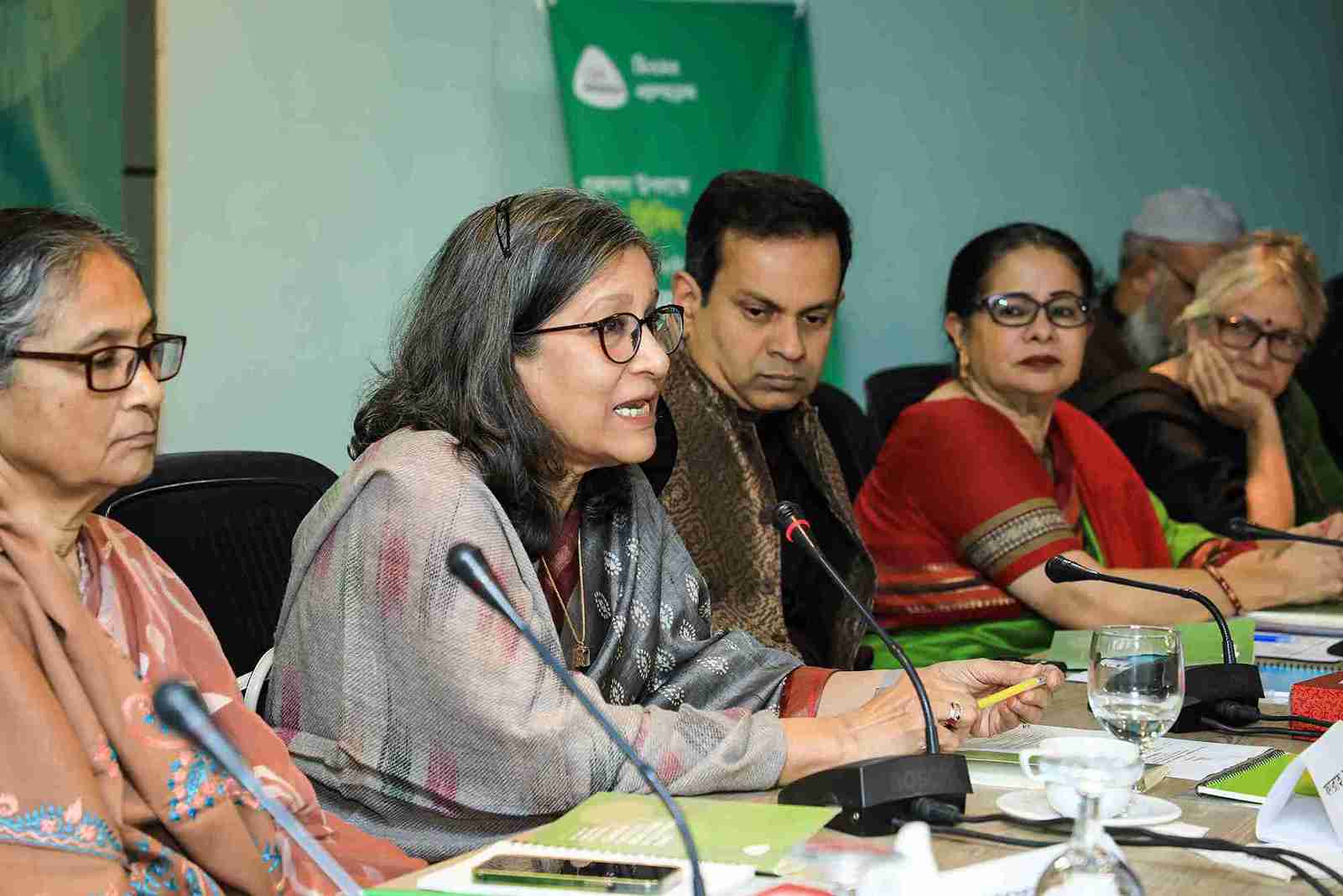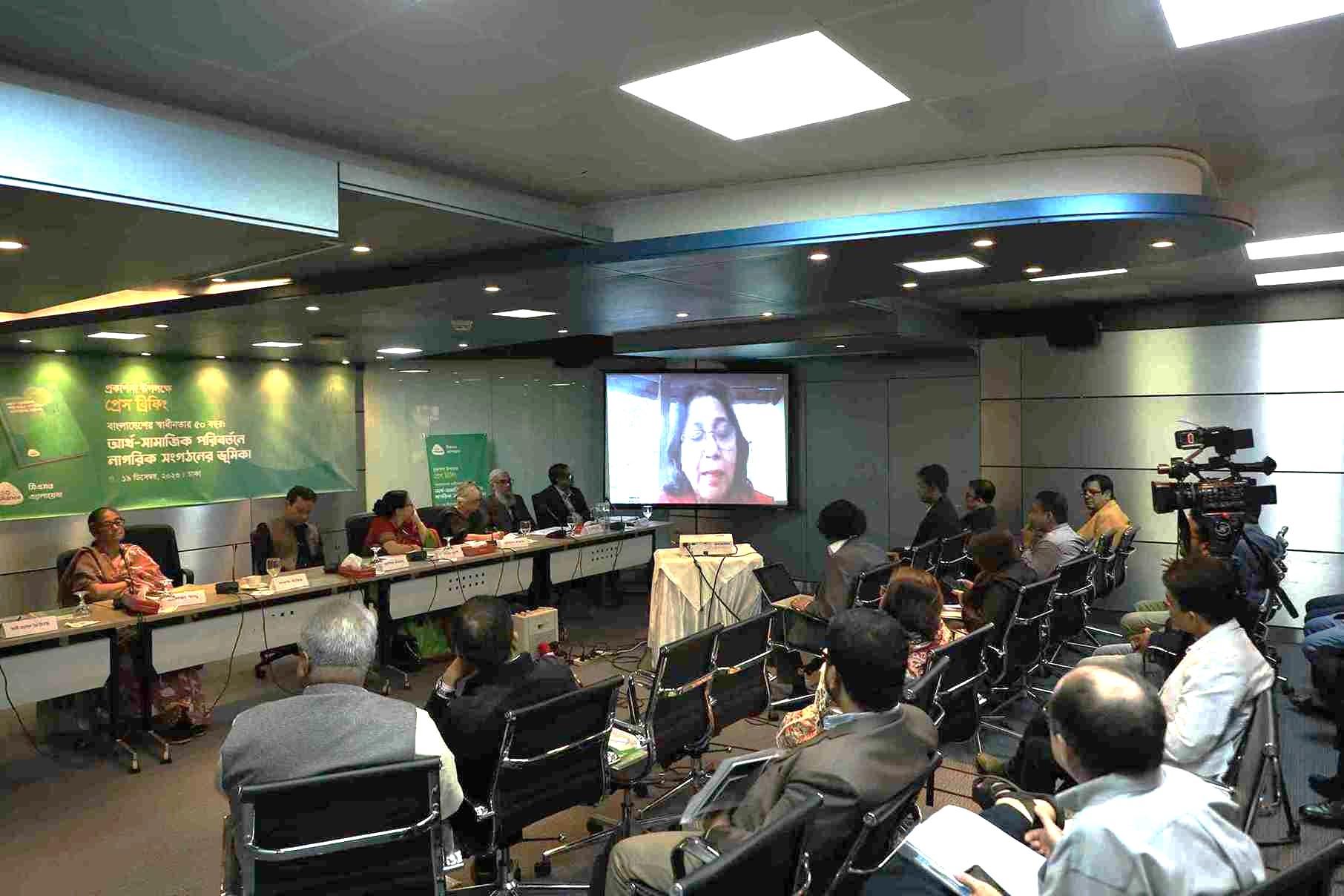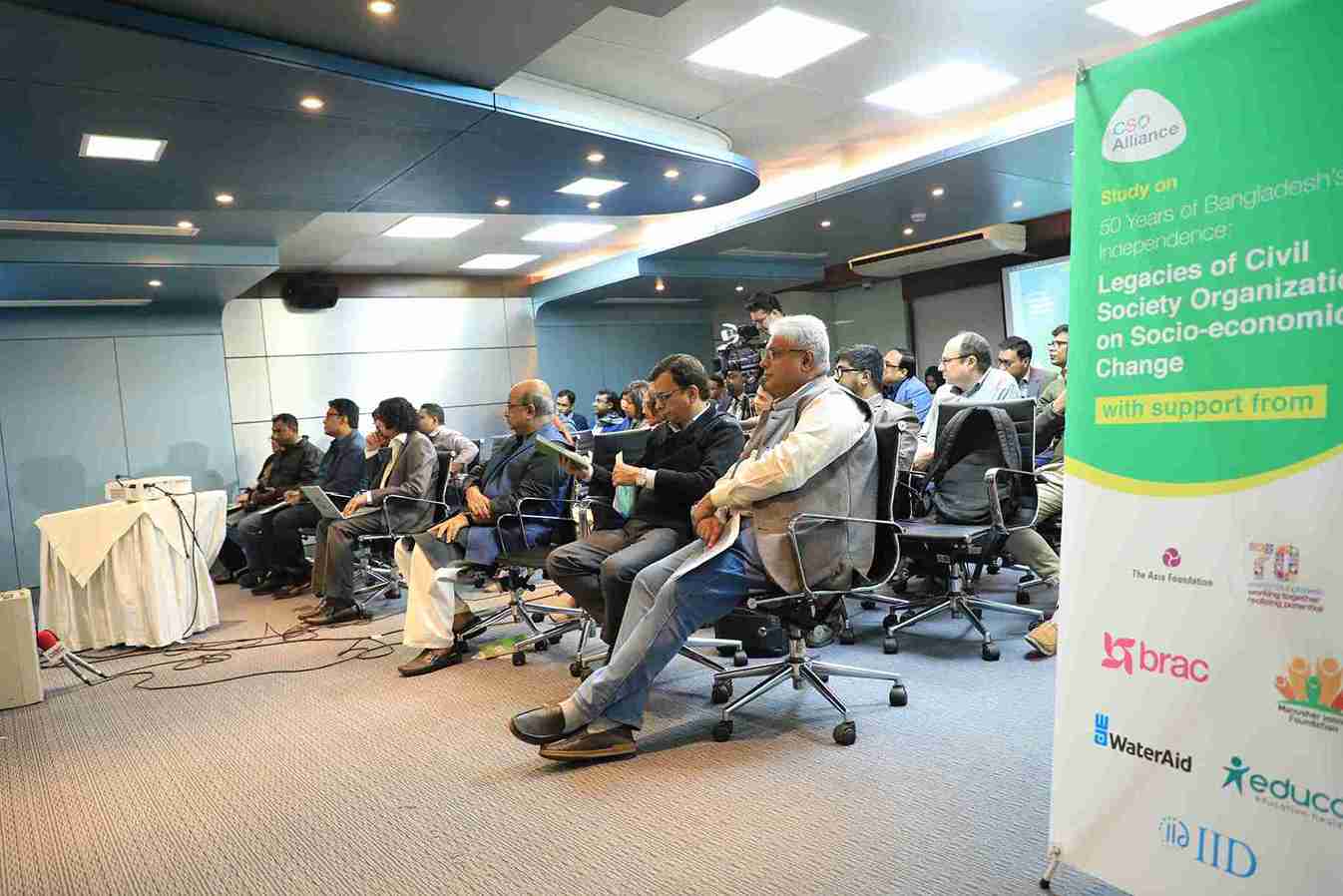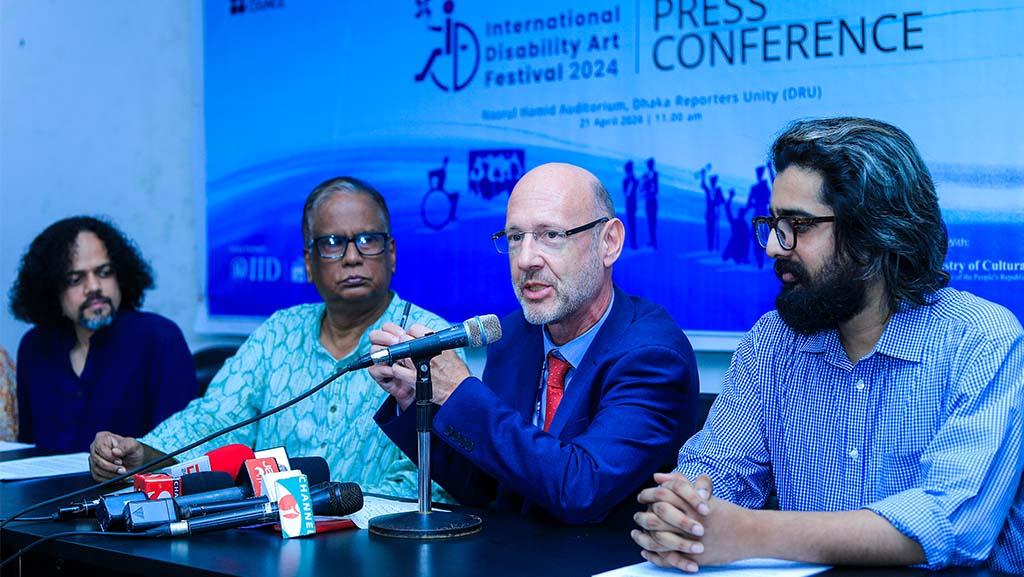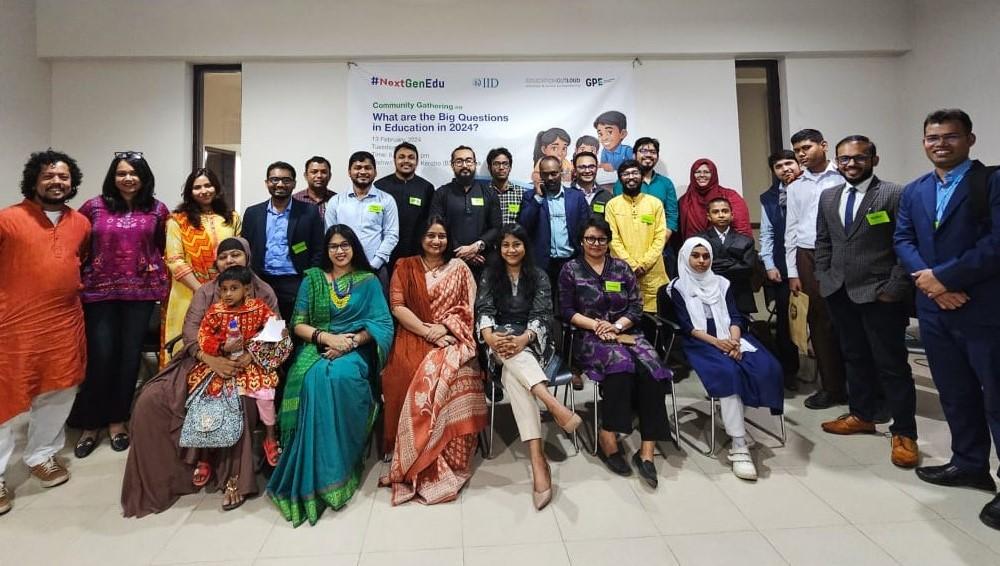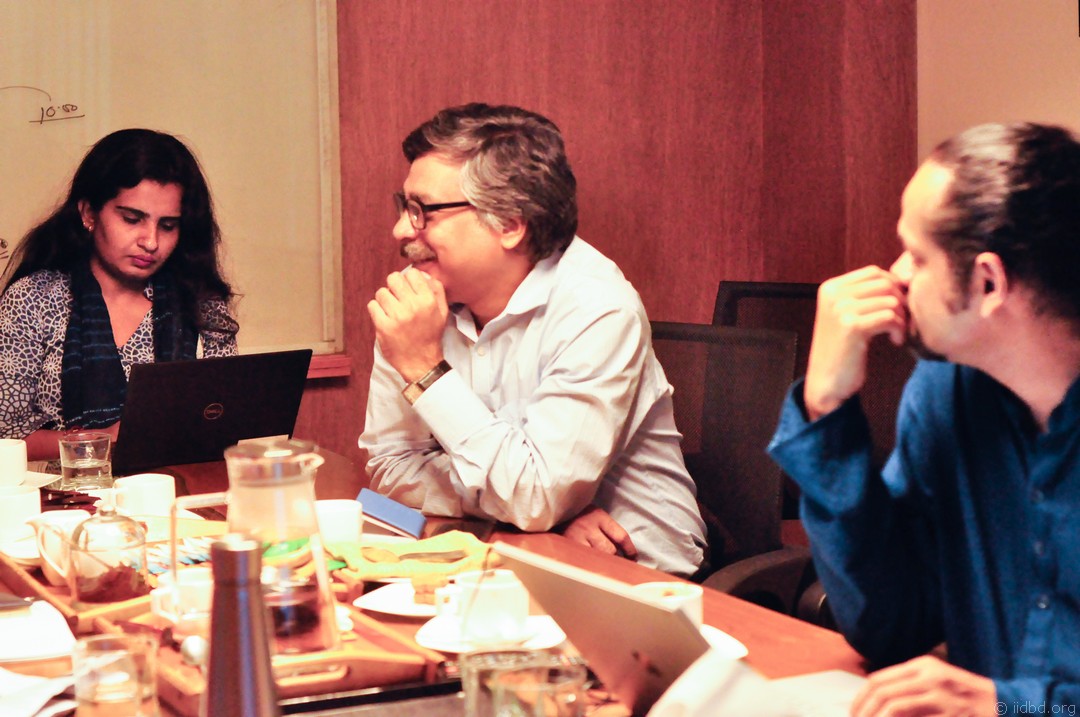The improvement in trust and cooperation between the government and civil society organizations (CSOs) over time is evident and it is necessary to further strengthen this. It is imperative for CSOs to become a greater driving force to bring together government and business stakeholders for more effective collaboration and sustainable outcomes, as emphasized in the recent press briefing program.
Marking half a century of contributions since Bangladesh’s independence, the CSO Alliance gathered to present a comprehensive report. This document highlights the crucial yet often overlooked contributions of civil society organizations to the country’s socio-economic advancement, emphasizing their essential role in shaping Bangladesh’s development narrative.
A noteworthy press briefing program was arranged by the CSO Alliance, a coalition of more than 300 development organizations and groups in Bangladesh, and took place on 19th December 2023, at the BRAC Center Inn, Dhaka. An important aspect of this occasion was the presentation of a thorough report titled “50 Years of Bangladesh’s Independence: Legacies of Civil Society Organizations on Socio-Economic Change.”
The presentation was given by Dr. Khandaker Golam Moazzem, Research Director of CPD and the study’s principal investigator. He gave a full synopsis of the study, highlighting the diverse contributions made by Bangladeshi civil society organizations (CSOs). The Brief overview of the study included gender development, environmental sustainability, inclusive social mobilization, quality education, health and nutrition, and agricultural development.
The Executive Director of CAMPE and Convenor of the CSO Alliance, Rasheda K. Choudhury, discussed the crucial role that CSOs play in the fabric of national development. She emphasized their tenacity and commitment in the face of many obstacles, emphasizing how teamwork is necessary to accomplish development objectives.
Human rights activist Sultana Kamal drew attention to the historical and ongoing contributions made by women’s organizations in Bangladesh, which date back to pre-liberation times, as well as their ongoing advocacy in areas such as child and women’s law reforms.
Asif Saleh, the Executive Director of BRAC made remarks about Bangladesh’s historical background and cultural shifts during the previous fifty years, addressed the difficulties in recording the vast amount of work done by CSOs.
Other notable speakers included Shaheen Anam, Executive Director of the Manusher Jonno Foundation, highlighted the commitment of CSOs to constructing a non-discriminatory and democratic nation; Farah Kabir, Country Director of Action Aid Bangladesh, stressed the importance of documenting exemplary figures and presenting role models to the new generation, emphasized the significance of honoring important figures in Bangladesh’s development; and Maleka Banu, General Secretary of Mahila Parishad, spoke on the ongoing societal challenges and the vision for an equal and humane nation.
Dr. Ehsanur Rahman, the Advisor of the National Alliance of Humanitarian Accords in Bangladesh (NAHAB) as well as the representative of the Study Advisory Team, along with Kazi Faisal Bin Seraj, the Country Representative of Asia Foundation (Study Funding Partner) correspondingly spoke at the event, offering their perspectives on the various functions and effects of CSOs in Bangladesh.
The program was also attended by the representatives from Educo Bangladesh, ADD International, Jaago Foundation. Additionally, reporters from Prothom Alo, The Business Standard, Dhaka Tribune, DBC News, and Somokal media, among other reporters, were also present and covered the news of the press briefing.
Syeed Ahamed, the Coordinator of CSO Alliance Secretariat and Chief Executive Director of the Institute of Informatics and Development (IID), extended gratitude to all contributors.
All things considered, the press briefing was a polished and educational occasion that provided a forum to highlight the vital but little-known role that civil society organizations play.

